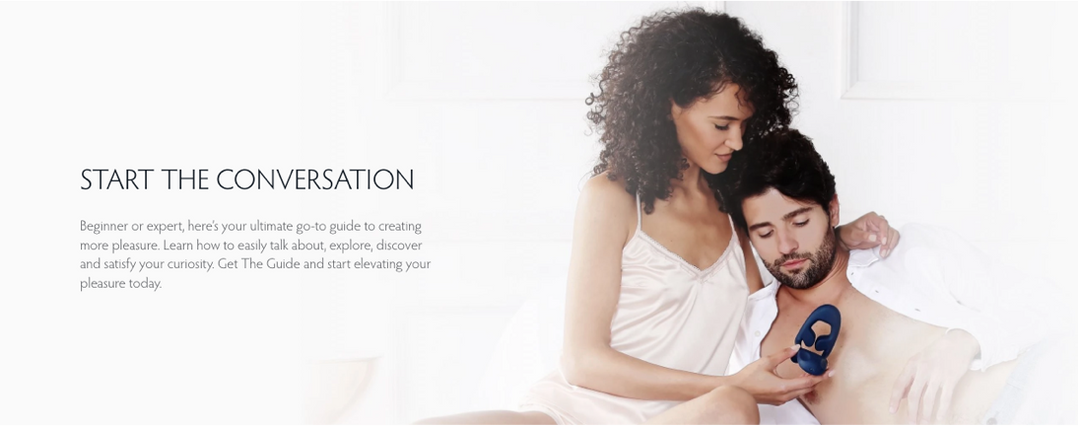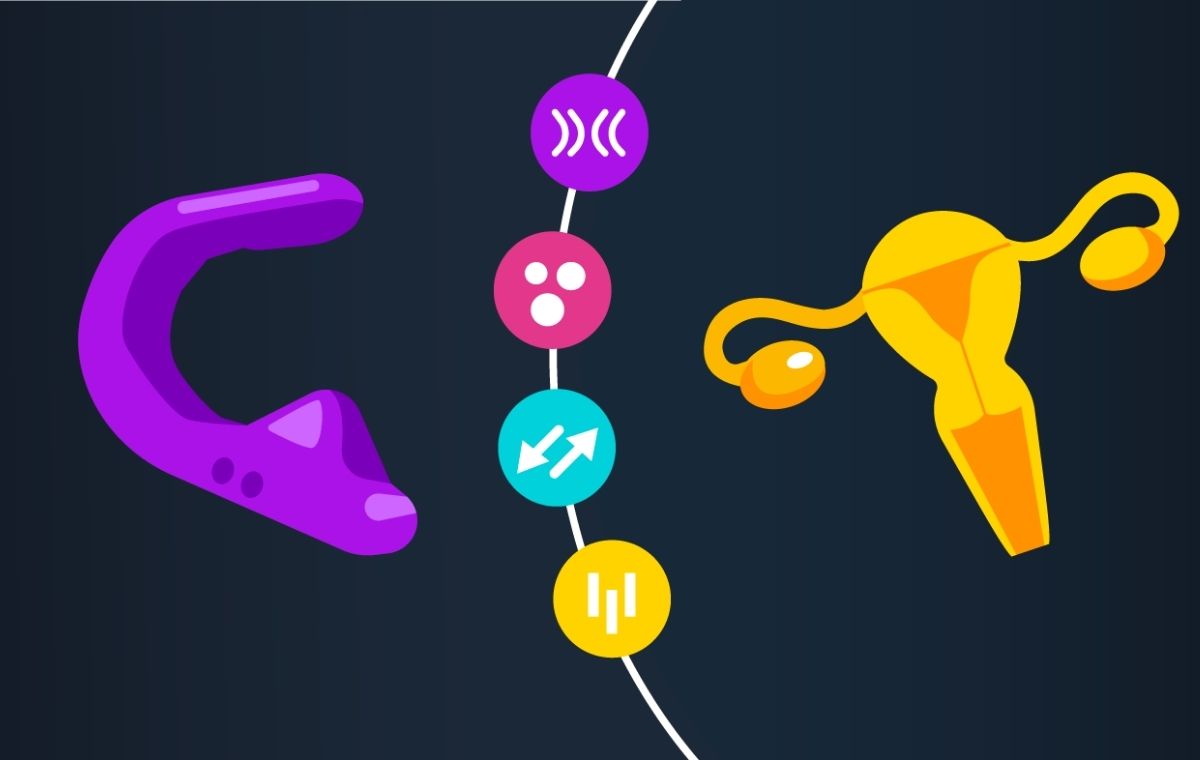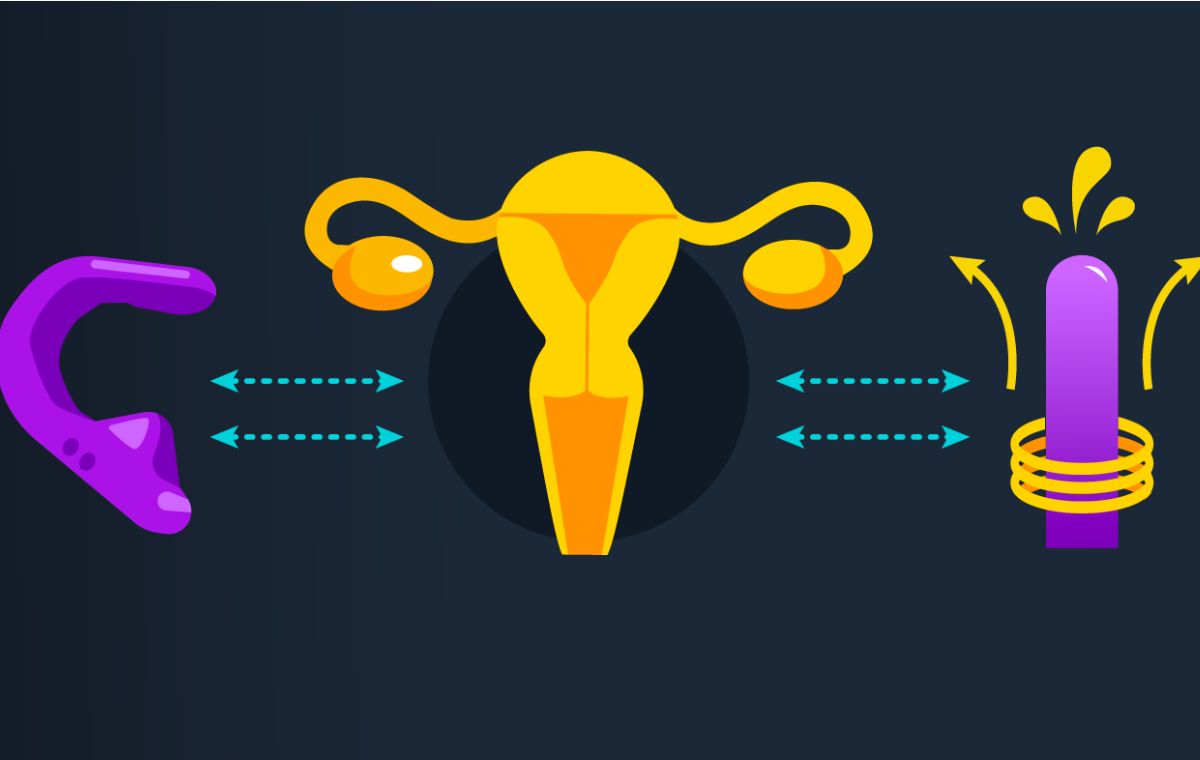Porn Tabs Are Not Magic
What’s wrong with people knowing about porn?
What data are you hiding and what data are you giving away to porn sites?
How to protect your data when you’re browsing
Know the data privacy law in your country
If the title of this piece had simply been ‘how much data are you giving away?’ we bet most of you wouldn’t have clicked. The simple fact is that we leak data all day, every day. Almost every single interaction we have – with friends as well as companies – involves a certain amount of data. Whether you’re ‘liking’ someone’s engagement announcement on Facebook or idly browsing through interior design websites to decide how to furnish your lounge.
In fact, information about our habits and preferences is now so frequently scraped and fed back to us that it’s become so much background noise. Ten years ago people were surprised and disturbed to find adverts following them around the web – nowadays most people would just shrug it off as the way things are done.
Of course you’re being shown ads for last-minute trips to Barcelona – you Googled it yesterday and so that data can be used to target you with exactly the products you want. These days it takes more than a tailored advert or two to surprise us.
It’s still surprising, though, to learn just how much info we’re giving away.
In 2014 audiences at the Edinburgh Festival were simultaneously entertained and horrified by a show called The Secret Life of Your Mobile Phone, which lifted the lid on some of the secrets that your mobile phone gives away.
Using data being transmitted by the phones of the audience members, Channel 4 journalist Geoff White and security expert Glenn Wilkinson managed to pinpoint everything from their names, where they’d been on holiday, and even the specific bars they’d visited.
It can be shocking to learn what your phone and computer can say about you. And when it comes to sex, our personal data holds even more significance. There’s a fairly common misconception among less tech-savvy consumers that this data problem goes away if you use ‘private browsing’ mode – aka porn tabs. But they aren’t quite the online invisibility cloak that many people think.
What’s wrong with people knowing about porn?
Before we get into the nitty-gritty of data, it’s important to note that when we’re talking about porn viewing habits, there’s a lot of societal shame and stigma to wade through.
We think that adult content – whether that’s erotic writing, photography, video or anything else that presses your buttons – is not only a vital outlet for creativity and sexual expression, it’s also nothing to be ashamed of.
As long as the content is legal, consensual and ethical, porn can be an incredible addition to anyone’s sex life – solo or partnered.
What’s more, the assumption that porn is de facto embarrassing is one we should fight. No one should feel ashamed of their sexual desires or of seeking out (legal, ethical) content that speaks to them.
However, we live in a world where the vast majority of people still are embarrassed by pornography: few are brave enough to share their kinks on Facebook, for instance. More seriously, there are many people who simply don’t have the option to be open about their tastes: they risk losing jobs, being ostracised by family, or even in some countries arrest and imprisonment for watching porn that would be perfectly legal here in the UK. So the ways in which porn sites track users is always going to be significant in a different way to other consumer websites.

What data are you hiding and what data are you giving away to porn sites?
Private browsing tabs serve a very specific function – but that function may be more limited than you think. When you open a private browsing tab you’re effectively telling your computer (or phone, tablet etc) that you do not want it to log your activity on this specific visit. It won’t store your history in the browser itself, or cache any pages or images from your session. However, in order to load the pages and videos you want to see, it still has to give a lot of data to your ISP and the websites themselves.
Let’s look at the kind of data you’re giving away. Firstly there are the obvious details, which anyone who has logged into Google Analytics will be very familiar with:
- Location
- Age
- Gender
- Type of browser
- What you’re browsing on (phone, tablet, computer)
Although the location and age won’t necessarily be accurate – Google guesses based on your other activity, and so far it only uses the very simplistic binary ‘male’ or ‘female’. You can check what gender Google thinks you are in your profile settings if you’re interested.
If you’re not in ‘private browsing’ mode, and you have cookies enabled, then the site may be able to tell a little more about you: which search terms brought you to the site, for instance, or what your general interests are. If that site uses services from third-party websites – such as embedded videos from YouTube, share buttons from social networks, etc, those third-party websites will receive your data too.
But there’s more to it than this.
Your Unique Data Fingerprint
When you access a website you give it certain information about yourself. Your IP address, for instance, and other bits of info. This data is sent even if you’re using ‘private browsing’. And although it may not have your name attached, it is still possible to identify an individual user or household from that information. You may be AnonUser264 as opposed to ‘Jane Doe’ but websites can tell a lot about AnonUser264 – she has a unique fingerprint.
Not only is it possible for websites to use these unique fingerprints to serve targeted content (recommending things you might like, for instance), it’s also possible for them to pass them on to other websites in the same network.
Let’s say a company owns a group of ten different porn websites – it’s more than possible that the company could track AnonUser264 across other sites in the group. And if it also owns a fairly ‘vanilla’ website too, where AnonUser264 has comfortably registered under her real name of Jane Doe, then it would be possible to match those two things to build a more identifiable profile.
It’s difficult, when talking about data, to avoid scaremongering. By its nature, the world of data collection is quite murky – we can tell you what is possible but still have no idea what data is actually being collected for any given site, or how it is being used. The way your data is processed will be subject to the laws in your own country, and there will be rules not just about what a company collects but how it is allowed to share that info (if at all) and how long it is allowed to keep your info before deleting it.

How to protect your data when you’re browsing porn
- VPN (Virtual Private Network)
People are increasingly talking about using a VPN to protect privacy. A good VPN might protect stop an ISP tracking/logging your browsing, or from an insecure public Wi-Fi hotspot (but, seriously, browsing porn in public is rarely going to end well…), but it offers no real protection against tracking by the website in question. You also need to make sure you trust the VPN operator, as they get to see every website you visit: they could be logging every site you visit, and selling or sharing that information.
- Ad-blocking software
You could install ad-blocking software in your browser, to try to stop as many tracking scripts as possible. This will not stop the website you are visiting from getting information from your browser, but might limit just may other parties get it. The downside is that, if your favourite site relies on revenue from ad networks, blocking those ads obviously harms their income.
- Paying for your porn
You could buy porn from people and sites you trust. If you pay for your porn, the sites in question may be less inclined to misuse your data — they do not have the same incentive as a site funded by adverts or data gathering.
- Tor browser
Lastly, you could use a system designed to keep you anonymous online: you could browse via the Tor network, using the “Tor Browser“. Tor works by routing communications through multiple hops before getting to the site you actually want to visit. Some sites block Tor traffic, or make you complete “captcha” quizzes to prove you are not a robot, and it is unlikely to be as fast as your normal Internet connection. Note that some countries may treat just having Tor installed on your phone or computer as a sign you are doing something dodgy.
Know the data privacy law in your country
Some countries have stronger privacy laws than others. If you are browsing a site operated by a company or person in the EU, you are likely to have more in the way of privacy rights than a site hosted, say, in the USA. Of course, you can’t guarantee that the site operator is following privacy laws, but it might offer some slight additional protection. If you are that way inclined, you since GDPR legislation passed in May this year, you have the right of access to your personal data.































